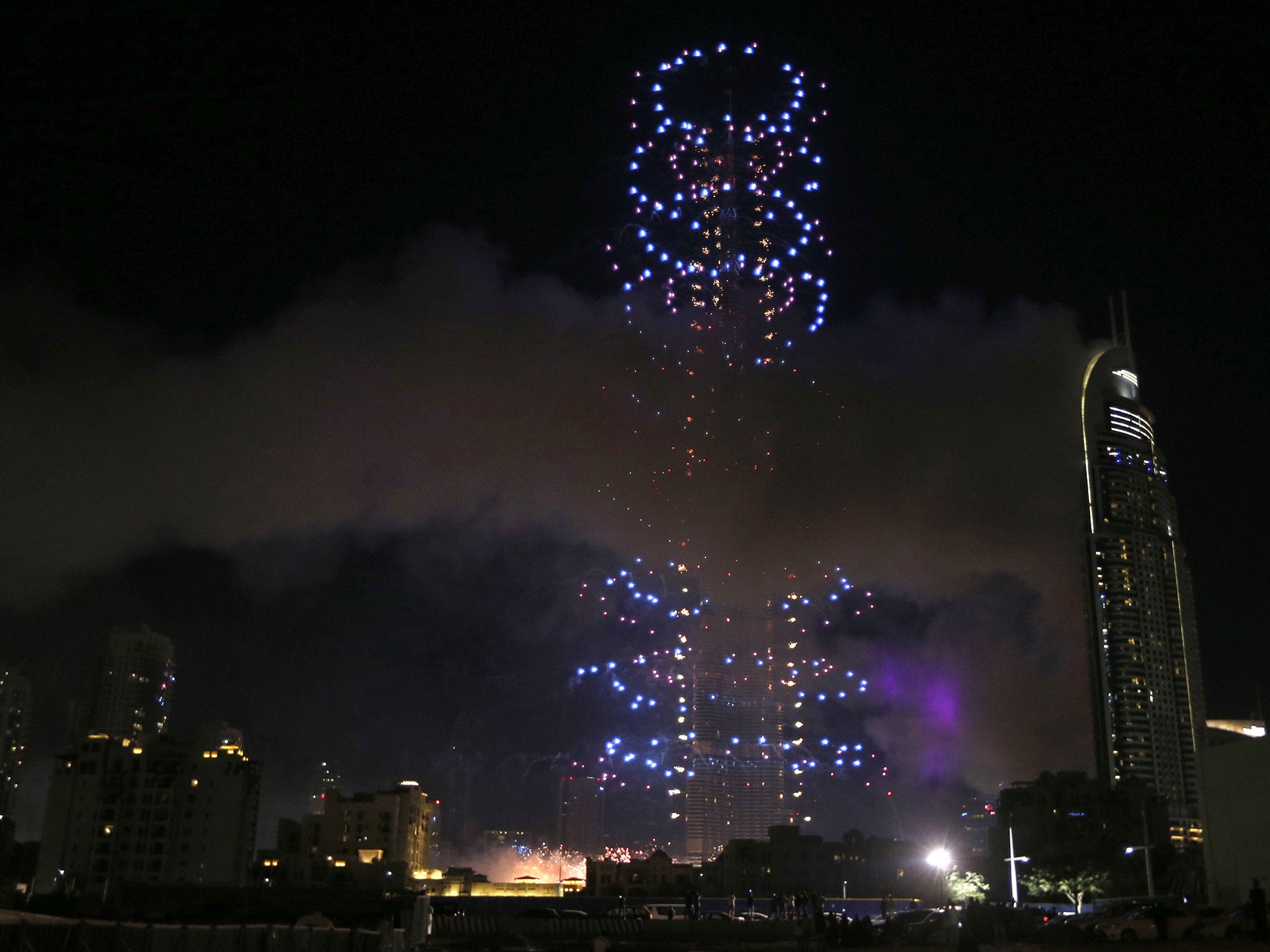Dubai Address hotel fire: This is a city with record-breaking ambition
Dubai's astonishing growth is fuelled by investors fixated upon building a Middle East Manhattan on a scruffy patch of desert

Just before fire broke out in the 63-storey building housing The Address Hotel, the Government of Dubai Media Office tweeted: “@BurjKhalifa set to dazzle the world in 200 minutes.”
Despite an emergency evacuation and some formidable firefighting taking place nearby in the closing hours of 2015, the firework display centred on the world’s tallest building went ahead as planned.
A Government statement after the event read: “Dubai’s successful New Year's celebration is testimony to its steadfast commitment to its major projects and initiatives.” This is a city obsessed with appearances and superlatives.
The scale and ambition of Dubai is such that The Address - just nine feet short of 1,000ft - is only the 18th-tallest structure in the Emirate, according to the Council on Tall Buildings and Urban Habitat. Yet the skyscraper which was still ablaze at dawn on New Year’s Day is among the highest 100 buildings in the world.
The Burj Khalifa, the needle pointing skywards from close to the site of the New Year’s Eve fire, is 100 storeys higher than the 63-floor Address. It reaches more than half a mile high, well over twice the height of the Shard in London.
The UK capital has also been eclipsed by Dubai’s main airport - which now handles more international passengers than Heathrow, the busiest in Europe. It is expected in the next few days to announce it has overtaken London’s main airports for total travellers (including the millions of domestic passengers using Heathrow). Even Dubai’s second airport, Al Maktoum international, will soon be capable of handling as many passengers as all of London’s airports combined.
Unlike neighbouring Abu Dhabi, Dubai has precious little oil. The commodity accounts for only six per cent of Government revenue, which after a year of plummeting oil prices has been to Dubai's advantage. Indeed, cheaper fuel means that the world can reach this Middle East Manhattan built on a scruffy patch of desert more easily - with most arrivals flying in on Emirates, the national carrier.
While Dubai remains mainly a transit point, it has extracted remarkable success from tourism - offering a combination of guaranteed sunshine, great shopping and easy access.
The UAE is officially a conservative Islamic society, yet Dubai turns a blind eye to the unmarried couples and gay visitors among the millions of tourists each year. Similarly, multinational firms see the Emirate as a relatively tolerant HQ location for Middle East operations.
Shortly after the fire and the fireworks, Dubai’s ruler, Sheikh Mohammed bin Rashid Al Maktoum, tweeted: “Wishing everyone a wonderful new year full of happiness, achievements and prosperity.”
Dubai is all about achievements and prosperity. The show must always go on.
Click here to view the latest travel offers, with Independent Holidays.
Join our commenting forum
Join thought-provoking conversations, follow other Independent readers and see their replies
Comments
Bookmark popover
Removed from bookmarks